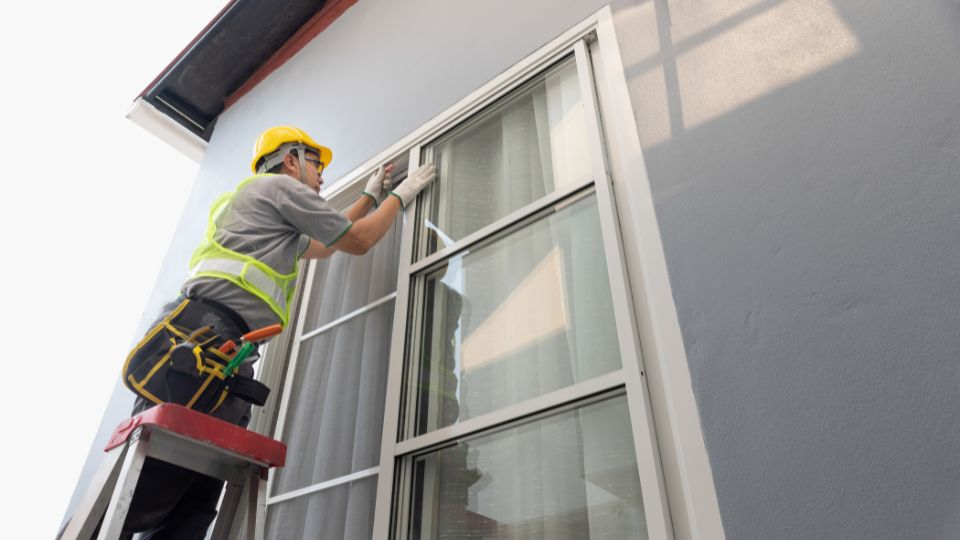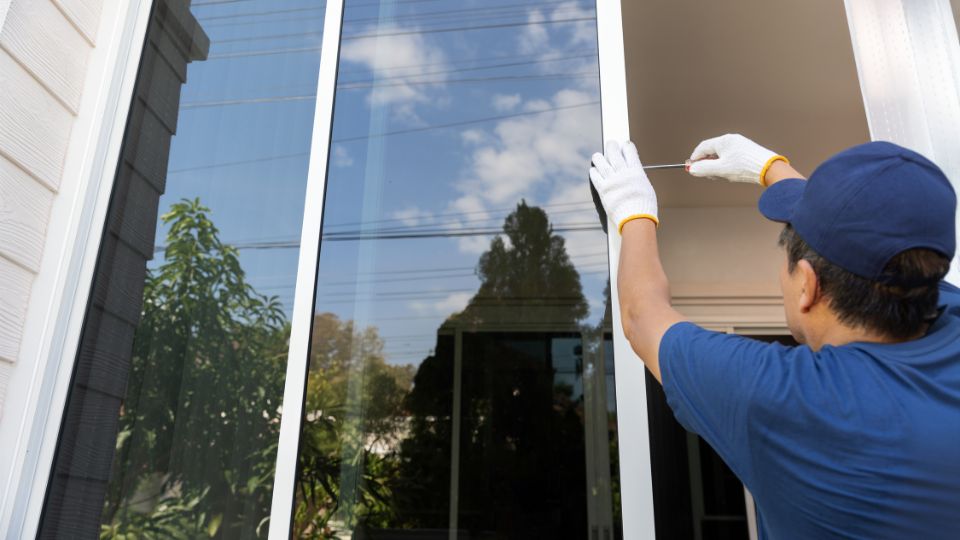When it comes to glass replacement, selecting the right materials can make a world of difference. You’ll want to think about durability, energy efficiency, and aesthetics. For windows, double or triple-pane glass offers better insulation, while tempered glass is perfect for safety in high-traffic areas. Low-E coatings can help regulate indoor temperatures by reflecting heat. If you’re considering a decorative touch, stained or frosted glass can add character. Always consult with a professional to ensure you choose materials that suit your specific needs and environment.
Types of Glass: Understanding Your Options
When replacing glass, it’s essential to know the different types available. Float glass is the most common choice for windows due to its clarity and affordability, while tempered glass offers increased strength and safety, making it ideal for areas prone to impacts. Laminated glass, which consists of layers bonded together, provides excellent sound insulation and UV protection. For specialized needs, consider options like Low-E glass for energy efficiency or stained glass for aesthetic appeal. Understanding these types will help you choose the right glass for your specific project.

Float Glass: The Standard Choice
Float glass is the most commonly used type for windows and doors due to its clarity, affordability, and availability. This type of glass is manufactured by floating molten glass on top of molten tin, resulting in a smooth, even surface. It’s ideal for residential applications where visibility and cost-effectiveness are priorities. However, while float glass offers excellent transparency, it lacks the added strength and safety features of other specialized options.
Tempered Glass: Safety First
Tempered glass is designed for increased strength and safety, making it perfect for areas that experience impacts, such as shower doors and glass railings. It undergoes a rigorous heating and cooling process that makes it significantly more resistant to breakage. In the event of shattering, tempered glass breaks into small, blunt pieces, reducing the risk of injury. This safety feature makes it a preferred choice for both residential and commercial applications.
Laminated Glass: Sound and UV Protection
Laminated glass consists of layers of glass and a plastic interlayer bonded together, providing enhanced sound insulation and UV protection. This type of glass is excellent for reducing noise from outside and protecting interiors from harmful ultraviolet rays that can cause fading. It’s often used in environments where privacy is desired, such as in offices or homes near busy streets. The added durability also makes laminated glass a smart choice for security applications.
Low-E Glass: Energy Efficiency
Low-E glass, or low-emissivity glass, is designed to improve energy efficiency in homes and buildings. It features a special coating that reflects heat back indoors during winter while keeping it out during summer. This technology helps maintain a comfortable indoor temperature year-round, reducing reliance on heating and cooling systems. By investing in Low-E glass, homeowners can lower their energy bills and reduce their environmental impact while enhancing the comfort of their living spaces.
Stained Glass: Aesthetic Value
Stained glass is a beautiful choice for adding artistic flair and character to windows and doors. This decorative option comes in various colors and designs, allowing for personalized expressions in architectural elements. While it primarily serves aesthetic purposes, stained glass can also offer some privacy. It’s often used in churches, homes, and public buildings to create striking focal points. Choosing stained glass can elevate your space and bring a unique charm to any environment.
Energy Efficiency: Keeping Your Home Comfortable
Energy efficiency is a crucial factor when selecting glass for replacement. Double or triple-pane windows are designed with insulated spaces between the panes, significantly reducing heat loss in winter and keeping your home cooler in summer. Low-E (low-emissivity) coatings are also worth considering, as they reflect heat back into the room during cold months and keep harmful UV rays out in the summer. By prioritizing energy-efficient glass, you can enhance your home’s comfort while potentially reducing energy bills, making it a wise investment for the long term.
Safety and Security: Choosing the Right Glass
When it comes to glass replacement, safety and security should never be overlooked. Tempered glass is a popular choice for areas where breakage might occur, as it shatters into small, blunt pieces rather than sharp shards. Laminated glass offers an additional layer of protection by holding together when broken, making it harder for intruders to gain access. For exterior doors and low-traffic areas, consider impact-resistant glass to further enhance security. Prioritizing safety in your glass choices ensures peace of mind for you and your family.
Aesthetic Appeal: Glass that Enhances Your Space
The visual impact of glass cannot be underestimated. Choosing the right glass can enhance the overall aesthetic of your space, whether you opt for clear, frosted, or decorative glass. Clear glass provides an unobstructed view and is perfect for maximizing natural light, while frosted glass offers privacy without sacrificing light. Decorative options, such as stained glass or etched designs, can add character and uniqueness to windows or doors. Considering the aesthetic appeal of your glass choices can elevate your home’s style and create a welcoming atmosphere.
Installation Considerations: Professional vs. DIY
When replacing glass, deciding between professional installation and a DIY approach is crucial. While some may feel confident tackling the job themselves, glass installation requires specific tools and expertise to ensure a proper fit and seal. Mistakes during installation can lead to air leaks or even safety hazards, so weighing your skills and the complexity of the job is vital. Hiring a professional can provide peace of mind, as they have the experience to handle potential challenges efficiently. Ultimately, considering installation options can save you time and ensure a successful glass replacement.
Cost Factors: Budgeting for Glass Replacement
Budgeting for glass replacement involves considering various factors that can impact the overall cost. The type of glass you choose plays a significant role, with specialized options like Low-E or laminated glass typically costing more than standard float glass. Additionally, the size and style of the installation, including custom shapes or decorative designs, can influence the price. Don’t forget to factor in installation costs, whether you choose to go with a professional or do it yourself. Creating a comprehensive budget will help you manage expenses while selecting the best glass for your needs.
Maintenance and Care: Ensuring Longevity
To keep your newly replaced glass looking great and functioning well, regular maintenance is essential. For windows, cleaning with a soft cloth and a mild detergent can prevent dirt and grime build-up. Pay attention to the seals and frames; any signs of wear or damage should be addressed promptly to avoid potential leaks or drafts. If you have Low-E coatings, be careful not to use abrasive cleaners that could scratch the surface. By taking the time to maintain your glass, you can ensure its longevity and performance for years to come.
Environmental Impact: Sustainable Glass Choices
In today’s world, considering the environmental impact of your glass choices is increasingly important. Opting for energy-efficient glass, like double or triple-pane options, can significantly reduce your carbon footprint by minimizing heating and cooling needs. Additionally, look for manufacturers that use sustainable materials or practices in their production processes. Recycling old glass during replacement can also contribute to a more sustainable approach. By making conscious choices about the glass you select, you can help protect the environment while still enjoying the beauty and functionality of your home.
Conclusion
Selecting the right materials for glass replacement is crucial to ensure durability, aesthetics, and energy efficiency. At Vista Glass of Tanque Verde, we understand the unique needs of our local community and are dedicated to providing high-quality glass solutions tailored to your specific requirements. Whether you need tempered glass for safety or insulated glass for improved energy performance, our team is here to guide you through every step of the process.
As you consider glass replacement options, remember that the materials you choose can significantly impact your home’s comfort and appearance. Trust Vista Glass of Tanque Verde to deliver exceptional service and expert advice, ensuring that you make informed decisions for your glass needs.

